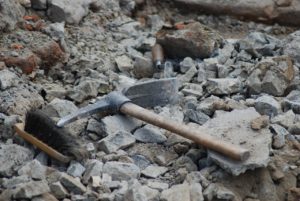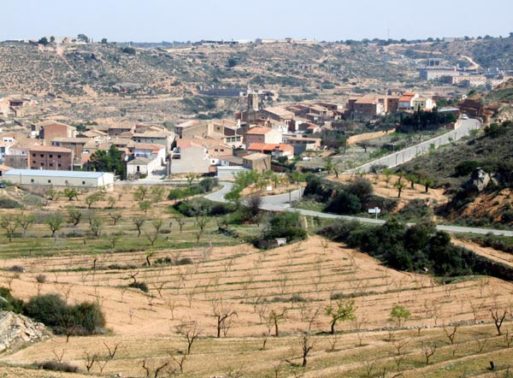In Spain, the bones of Civil War era dead are unearthing wounds that remain fresh among many Spanish citizens.
As the CBC reported earlier this year, an archaeological dig near the town of Soleras — a key site during the Spanish Civil War — has turned up the remains of 100 dead men and at least one dead woman.
 The Spanish Civil War took place from 1936 to 1939 and was fought between left-leaning Republicans and right leaning Nationalists under General Francisco Franco. The Nationalists were ultimately victorious and ruled Spain until Franco’s death in 1975.
The Spanish Civil War took place from 1936 to 1939 and was fought between left-leaning Republicans and right leaning Nationalists under General Francisco Franco. The Nationalists were ultimately victorious and ruled Spain until Franco’s death in 1975.
The war left scars across the country, many of which still remain fresh. Recent debates about the potential autonomy of the Catalan province, which still holds strong animosities towards the Franco government, have made the recent archaeological discovery particularly poignant.
More than 100,000 Disappeared
Next to Cambodia, Spain has the second most mass graves in the world, according to a report by the BBC. More than 100,000 people disappeared over the course of the Spanish Civil War and throughout the Franco dictatorship.
It’s estimated that there are more than 2,000 mass burial sites spread across Spain, most of which contain the victims of executions carried out by pro-Franco forces.
During the Civil War, the town of Soleras was located near the front line of the fighting. It contained two hospitals and a mobile field unit.
While Franco’s Forces were careful to retrieve the remains of their fighters and give them a proper burial following the Civil War, the same courtesy was not extended to the Republican side.
With the increased push for Catalan independence, the calls for retrieval and repatriation of the Republican dead have increased.

The village of Soleras in Catalonia
Credit: Fotoarxiu.sarratetorres via Wikimedia Commons
Passed under the socialist government of José Luis Rodriguez Zapatero in 2007, the Historic Memory Law offered public funding to help excavate mass graves. However, the funding was cut by Prime Minister Mariano Rajoy in 2011.
Recovering History
The move was received poorly by many in the Catalan province, who feel their history is being swept under the rug.
Despite the setback, the regional government of Catalonia took it upon themselves to help move the project forward. They have now gone so far as to set up regional DNA databases to help identify the dead.
The hope is that by locating and unearthing the long buried remains, the region and the country can move a step closer to healing old wounds.

 Unearthed Spanish Civil War Remains Open Old Wounds
Unearthed Spanish Civil War Remains Open Old Wounds


 “Help Me, Helen”
“Help Me, Helen”

 “As Tears Go By” by Marianne Faithfull
“As Tears Go By” by Marianne Faithfull














